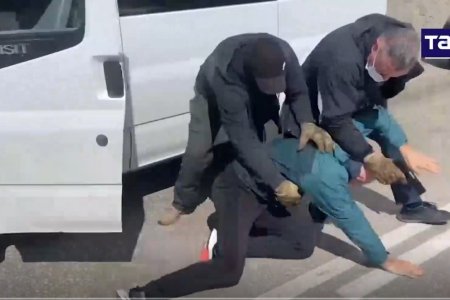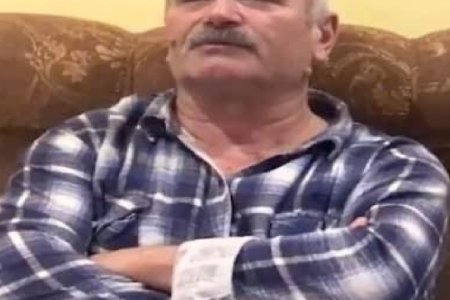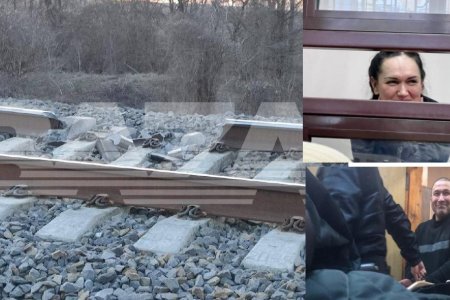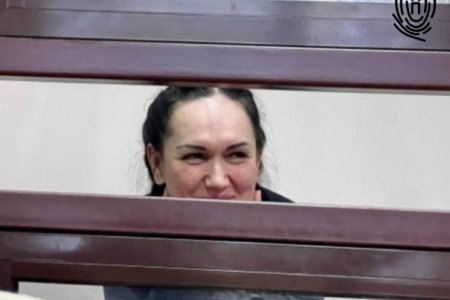
Kyrylo Barannyk, a Ukrainian from occupied Simferopol, has revealed details of the savage torture he was subjected to by the FSB in order to extract ‘confessions’ to various acts of sabotage. His account is similar to those provided by numerous other victims of repression and comes after months in which Russia’s FSB have systematically detained and illegally held Crimean Tatars for long periods of time, claiming this to be part of their ‘investigation’ into acts of railway sabotage.
Barannyk is 26 and lives with his mother, a pensioner. He is accomplished in orienteering sports, with that quite possibly having led to his being noticed by the FSB. The latter seized him on 30 May on suspicion of having caused an explosion on railway tracks on 23 February 2023. He remains in custody, but has given an account, reported both by Graty and by the Crimean Human Rights Group, regarding the methods used to force him into providing false ‘confessions’.
He was taken, with a bag over his head, to the FSB building in Simferopol. There, he says, he was subjected to torture, despite, seemingly, having admitted guilt. The FSB put him on a chair and, after binding his hands and feet with scotch tape, they tied electric wires to his fingers.
Throughout this excruciating torture, he had a bag over his head, and believes it continued for around an hour.
Even after he apparently confessed to the damage to railway lines on 23 February, the FSB continued their torture. demanding that he also ‘admit to’ the explosion on the railway lines near the village of Chystenke (Simferopol raion) on 18 May. Barannyk asserts that there were two other occasions when he was subjected to such electric current torture – during the night from 5 to 6 June and from 9 to 10 June. Each time, the torture continued for around six hours.
“The FSB officers forced me to admit to a crime that I hadn’t committed. At first, they tortured me with electric currents, connecting electric terminals to my fingers, toes, earlobes and buttocks. They threatened to fully rape me, and I took the threat seriously. Then they beat and kicked me around the torso and head, with this resulting, I believe, in a broken rib on my right side.”, Barannyk recounts. He is also suffering from acute pain in the kidneys from the beating and has partially lost feeling in his right hand.
This was not the end of his torment, with the FSB then laying him on a military stretcher and again binding his arms and legs before placing a rag over his face and pouring water, as though to drown him. He says that they would alternate this with the electric currents, demanding that he admit to a crime he had nothing to do with. They also threatened to kill his mother, or to kill him, claiming that he had tried to escape.
Barannyk is imprisoned in SIZO [remand prison] No. 2 in Simferopol, with the ‘investigation’ run by Aleksandr Lavrov and Aleksandr Kuznetsov. While it does appear that Barannyk admitted to the 23 February explosion, he did so while under the total control of FSB officers whom he accuses of torture and serious threats against himself and his mother. Typically, the FSB are only admitting to having detained him on 31 May, although his mother has confirmed that he was seized a full day before.
There are other grounds for scepticism about any such confessions. The FSB have, after all, made several other ostentatious arrests in occupied Crimea, claiming not only to have thwarted a Ukrainian ‘terrorist plot’, but to have found the culprits for the 23 February explosion. There is nothing to suggest that the FSB are linking him with the mass arrests on 3 May, yet they cannot have two separate ‘perpetrators’, however many ‘confessions’ they can obtain while men are held incommunicado and without access to independent lawyers.
The other reason for concern is that the FSB are continuing to target Crimean Tatars, with at least one of the men they effectively abducted and held incommunicado having also reported being beaten and threatened with never seeing his family again if he refused to sign ‘blank confessions’. While the FSB officers who seized 29-year-old Mambet Asan-Usta during the evening from 18 to 19 May after he was initially stopped by traffic police, primarily wanted a ‘confession’ to the Chystenke explosion on 18 May, the demand that he sign various documents suggests that he might well have been accused of the 23 February explosion as well.
As of 22 June, Crimea SOS was aware of 14 Crimean Tatars who had been detained, allegedly on suspicion of involvement in railway sabotage. The FSB may simply be using this as a pretext for ongoing harassment of Crimean Tatars, including prominent members of the Crimean Tatar community. Similar methods, however, have already been applied in fabricating fictitious sabotage charges against Nariman Dzhelyal, First Deputy Chair of the Crimean Tatar Mejlis, Asan and Aziz Akhtemov, and, given the lawlessness that Russia has brought to occupied Crimea, could be used to imprison whoever the FSB chooses.



